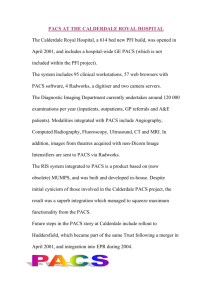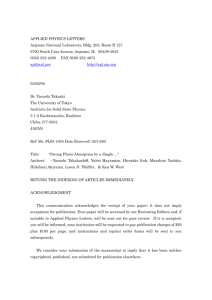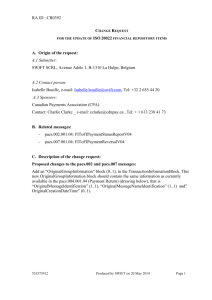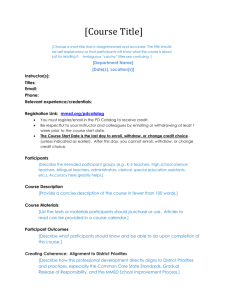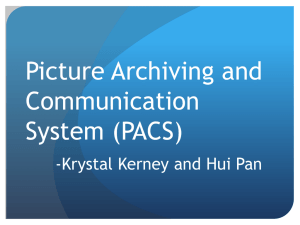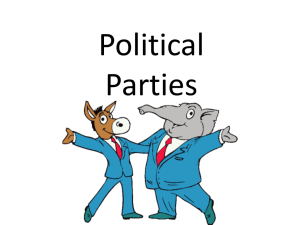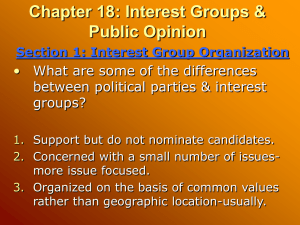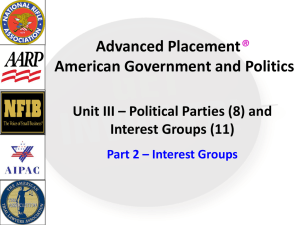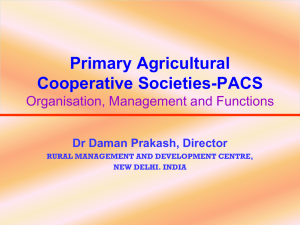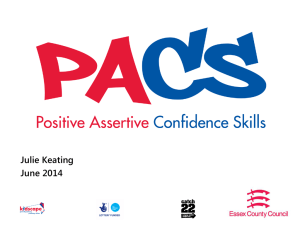PPT Slides -- January 13 - Peace and Conflict Studies
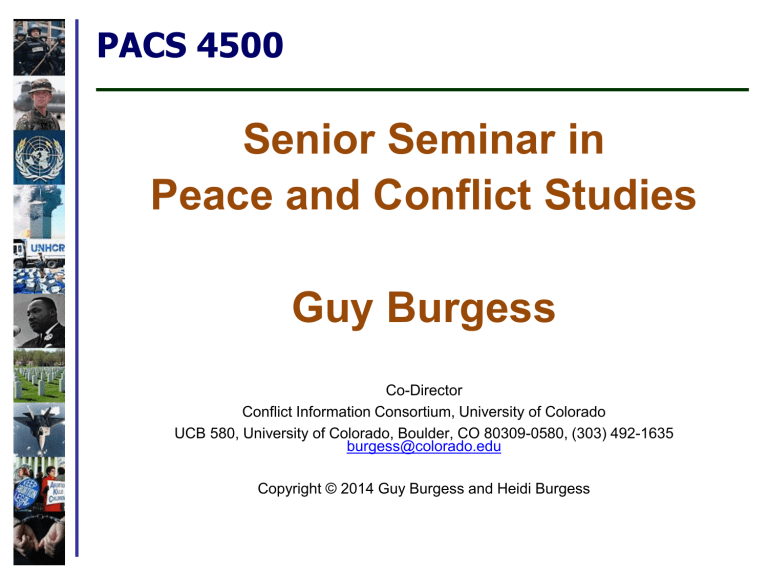
PACS 4500
Senior Seminar in
Peace and Conflict Studies
Guy Burgess
Co-Director
Conflict Information Consortium, University of Colorado
UCB 580, University of Colorado, Boulder, CO 80309-0580, (303) 492-1635 burgess@colorado.edu
Copyright © 2014 Guy Burgess and Heidi Burgess
Wait Lists / Registration
peacestudies.colorado.edu
Program Courses
PACS Requirements
PACS Requirements
PACS Forms
peacestudies.colorado.edu
Courses
PACS 4500 Syllabus
PACS 4500 Website/Syllabus
See
http://peacestudies.colorado.edu/pacs4500-course-homepage-spring2015
D2L
Website Link, Grades,
Drop Box
Only
Course Rules
You are responsible for reading and following the course rules on the Website
Screenshots
The next set of slides are all
“screenshots” from the class website.
All of this information is available online.
Use the online version of these pages , do not use these PowerPoints as your reference.
You will receive e-mail notifications of all significant changes to the website
Send to your _____@colorado.edu
address
Contact Info / Office Hours
Informal conversations encouraged
Urgent Contact Form
Urgent Contact Form
Main Campus Norlin Office
Norlin Library S423 (Inside S436)
East Campus Office
East Campus Office: ARC building, 3100 Marine St, East campus,
Room A228 [2nd floor (excluding basement), south "Annex" wing,
(not room 228)] -- Take the Stampede bus.
East Campus Office: Call first to make sure I'm available!
East Campus Office Phone: 303-492-1635. Use this or e-mail
(preferred) for messages.
Course Overview / PACS 2500
Online Text
Online Textbook Voucher
Purchase at UMC Bookstore $20.00
Temporary Text
Logging In, Lost Password
Logging In, Lost Password
Get Acquainted
PACS Political Orientation
Government of the people, by the people, for the people
Teaching Philosophy
Your
Filters
Lots of
Ideas
Your Worldview
Tweaking the Image / NOT Professorial Download
Play-by-Play vs. Color Commentary
Core Ideas: Peace and Conflict Theory
Current Cases: Current Peace and Conflict News
A Different Kind of Academic Rigor
Master the concepts
Engage the material
Develop your own personal views
Don’t worry about being
“right”
Practical Theory Focus
“There is nothing so practical as a good theory”
Kurt Lewin
More adaptable than idiosyncratic case examples.
Assignments Grading
Grading
Attendance and Participation
Attendance Credit
.mp4 Podcasts
Laptops –
For Class Use Only
• Power Point-based Note Taking
• Occasional exercises
Class Format
In the News, for the MOOS
Mini-lecture things to think and talk about
Virtual guest lectures
Reading framing question discussion
Small group discussion, activity, exercise
Countering Extremist Teaching http://tribune.com.pk/story/816284/countering-extremism-through-the-classroom/
Cultural Cross-Fertilization http://www.mnn.com/lifestyle/arts-culture/blogs/7-cultural-concepts-we-dont-have-in-the-us
Class Discussions / Exercises
Active versus passive learning
Hand-in notes sometimes
Chance to talk with your instructor
Random group assignments
Course Units
Unit 1: Understanding the Intractable
Conflict Problem
Unit 2: Complexity Oriented
Approaches to Conflict
Unit 3: Making a Difference
Framework
Unit 4: Areas Where You Can Make a
Difference
Unit 1: Understanding the
Intractable Conflict Problem
Millennial Mega-Worries
Destructive Conflict: A Climate-Change Class Problem
– Making the Case
Cultural/Institutional Lag and the Era of Hyper-Change
Walking the Talk: Really Listening across the Partisan
US Political Divide
The Fitzduff Debate II: the Peace and Justice
Movement Versus the Disappearing Moderate Center
Course Project Topic Exploration
Unit 2: Complexity Oriented
Approaches to Conflict
Post-it Note Systems Mapping
Conflict Mapping Technology Working Session
Plotting the Why Chains
Drawing Community Boundaries
Social Networking: Making the MOOS Concept Work
Conflict Pathology Brainstorming – Things That Go
Wrong
Making the Jump from Complicated to Complex
Peacebuilding (Mechanical to Organic Metaphors)
Unit 3 : Making a Difference
Framework
The Ethics of Peacebuilding: Dos and Don’ts and
Whys
Mapping Peer Review
Conflict BINGO
Using the “Make a Difference” Threaded Text System
Peace and Conflict Funders Group Massively Parallel
Peacebuilding 2030 Plan
“Follow the Money” Practicum
How Do We Know When We Succeeded – Building the
Conceptual Foundation for a Peace and Justice Index
“All of the Above” Solutions to Inequality
Unit 4: Areas Where You Can Make a
Difference
“All of the Above” Solutions to Political Violence
Way of Doing, Role Models
Designing Required Civil Society Courses for the
University
Reconciling the Distant past – Truth, Justice, Peace, and Mercy
Boulder Comprehensive Plan Simulation
Building the Human Economy
Security Crisis Response Contest
World Affairs Week – Project Consultations
Bright Idea Video Festival
Elevator Speeches
Course Restructuring
Reading Reflections
Relationship with in-class activities.
Week by Week Plan
PACS 4500 Readings
PACS 4500 Readings
• PACS 2500 Review
• PACS 2500 Important Review
Real World Reading Skills
All Purpose Web Form
For
Reading
Reflections,
Project Topic,
Attendance
Makeups
Course Project Topic
Course Project Part I: Mapping
Course Project Part II: Concept Papers
Major Course Project / Drop Box
Make A Difference Threaded Text http://peacestudies.beyondintractability.org/content/making-difference
Destructive Conflict:
A “Climate Change-class” Problem
Inequitable Inequality http://mobile.nytimes.com/2014/12/31/opinion/the-year-in-charts.html?_r=0
Political Polarization http://www.pewresearch.org/files/2014/12/PP-2014-06-12-polarization-0-05.png
Political “Gridlock”
Domestic Terrorism http://www.splcenter.org/get-informed/publications/terror-from-the-right
The New Class Conflict
Are Democrats the party of the .1%?
The Discarded Middle Class Problem http://mobile.nytimes.com/blogs/krugman/2015/01/01/recent-history-in-one-chart
Developing World
New Opportunities
Developed World
Unneeded Workers
Mushroom Hierarchy?
Changing Job Market
65% of the jobs that will be available in 10 years have not even been thought of yet!
http://www.denverpost.com/smart/ci_27292210/future-job-what-humans-do-better-than-robots http://www.dol.gov/oasam/programs/history/herman/reports/futurework/execsum.htm
The Human Economy https://hbr.org/2014/11/f rom-the-knowledgeeconomy-to-the-humaneconomy
Open Letter
Beyond Intractability
Collaborative Learning Community
MOOS
Massive Open Online Seminar S
Massive Open Online Course Seminar
No fixed body of knowledge, no tests, no grades – just a collaborative exploration of an extraordinarily important topic.
A Social Network-based Learning
Community
Reading Reflections
Points for New
Additional
MOOS
Materials
Post-Graduation Worries
Havlick’s Principle
Mega Worries
• What are the big problems that have to be solved?
• What are the obstacles to solving them?
• To what extent are these conflict problems?
• What kind of conflict problem?
Opportunities to be Pursued
Problems to be Limited
Positive and negative phraseology
Introductions ~ 1 minute
Name
Major
Career goals
Plans after graduation
Peace and conflict issues of greatest interest
